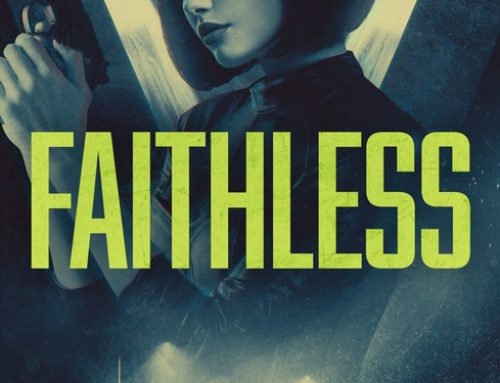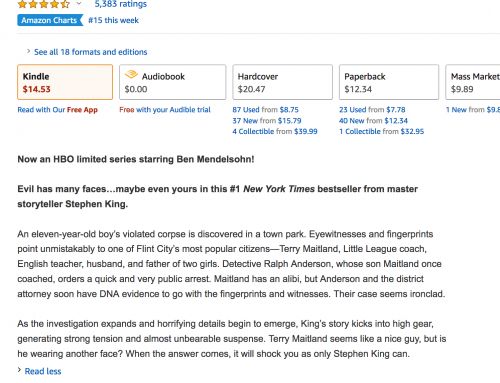1) It is Important to Show, Not Tell
First off it is important to show, not tell. Showing is based around description and that really helps a reader become engaged in a story and understand the situation the character is in. Telling is more of an expository summary of something, which as I’m sure you’ll agree isn’t quite as exciting!
Knowing your audience and creating characters that they not only engage with but also empathize with is very important. I try to create characters that kids can look up to as role models that deal with situations and issues that modern kids face on a daily basis.
I believe that education is the key to helping children grow into conscious people so I always have that in mind while writing. There are an abundance of stories out there so I always try to make mine hold some kind of meaning or message that will help the reader learn and grow.
One final piece of advice would be to keep it simple. It is to have fun and go off on tangents and add in extra details and flourishes, but the art is in being able to shave down that story as much as you can until you have something as simple and easy to follow as possible.
2) Fiction Spurs from Reality
Creating fiction, from the wildest high fantasies to accurate historical fiction, grounds itself in being relatable. The people, places, and actions of fictional creations relate to personal experiences. The personal experiences of a creator help to mold the work, while the experience of the consumer help to connect them to it. In the simplest terms it means to write what you know, but more accurately it requires that you inject as much of what you’ve experienced into your fiction as you can muster.
Each work of fiction must be approached differently, but you cannot accurately write what you have made no attempt to understand or interact with. You cannot experience everything in its truest form, but there are smaller experiences that you can draw from. A great hike over a mountain could be the burning in your chest from a day hike, the feeling of itchy wool sweaters on your skin, the aching of your feet from poorly fitted shoes, the chill air you inhaled after rolling down your window on a drive through the snow. All of these small realities help to shape the world you want to create.
You may not have personal experiences with inexplicable wizardry or the dealings of 17th Century French Bourgeoisie, but solid research and drawing from personal experience will get you one step closer to these fiction goals. You have grown as an individual over the last ten years, ten months, ten weeks, and ten days, so how has your character grown over that time? How has the world they inhabit at the end of your pen shifted? Reflecting on personal growth and creating believable character growth will build bridges between yourself, your fiction, and your readers.
Reflection, research, and experience are tools for strengthening the imagination.
3) Learn The Art Of Conflict
This is something that makes the audience stick to your reading. Conflict is something that is necessary because it makes your content stick out the most. Three act narrative suggests that any storytelling should have these three steps. Setup, conflict, and resolution.
4) Get Feedback
Find other writers to critique your work, in person or online. And then, when you think your novel is ready, find readers who are non-writers to give you feedback too. You’ll find writers and non-writers give different types of feedback. Readers identify problems, where other writers will offer up their own suggestions for fixing them.
You can also write reviews or summaries. There are book review and summary sites (like Wired For Youth, for example)
5) Start With Struggle
Positioning your character as a fish out of water, or as someone struggling with an internal conflict, is crucial. These struggles are instantly relatable to readers and hook them into the story. If readers don’t care about your character or their struggles, they will not sink into your story.
6) Writing fiction means telling a story — not a plot, a story.
The best stories, for me, are about what it means to be human. That means they’re about characters who are messy, flawed, complex – who struggle to be better, or more, than they’ve been. To give voice to a story like that, I find that I need to stay in touch with both the conscious and subconscious parts of myself. The subconscious part helps me to listen and understand, to know my characters more deeply. The conscious part helps me to hone my craft, prune away the excess words, and seek an ever more skillful way to say what needs to be said. Staying open to the two processes requires a special kind of attention—a pattern of immersion and stepping back, closeness and distance, freedom and rigor.
It’s all about the story! Rules, templates, grids, touchpoints, and all that other great advice can be helpful – or not. Listen for what the story needs, and serve it to the best of your ability.
7) Clarify your Character Perspectives
One of the hardest things for many fiction writers today to learn to do is writing from a single character’s POV or perspective. Whether the character is written in first person or close third person, readers should be clear whose head – internal thoughts – they are in at any one time. Chapter or section breaks can be used to signal switching to a different character’s POV. This clarification usually makes it much easier for readers to follow a story.
8) Create A Writing Routine
Jot down a certain amount of words or pages every day. Wake up early or stay up late to allow yourself the time to focus. Slot in a writing interval for yourself weekly like an appointment you aren’t allowed to miss. Moving forward with your writing is easier if it becomes a regular routine. Routines allow for stability and progress.
Write Fanfiction
Fanfiction allows you to dive directly into the story rather than having to come up with your own universes and characters. It’s a great way to build a writing habit because it makes writing super fun. There are a lot of great fandoms to choose from, anything from BTS to Lord of the Rings.
Never edit more than 10 pages (or 10 minutes) at a time
Staying focused isn’t hard to do for a short time, but when editing your own work, there often comes a time when you stop revising and begin reading. By giving yourself a limit, you force yourself to stay in your editing zone, avoiding the moment when you realize you haven’t critically examined the last page (or the last chapter). An editing break doesn’t need to be long – it can be walking to the kitchen, pouring yourself a glass of water, and coming back – but it’s important if you want to remain at the top of your game.
Get an Editorial Review | Get Amazon Sales & Reviews | Get Edited | Get Beta Readers | Enter the SPR Book Awards | Other Marketing Services























These are great tips! Thank you for sharing!